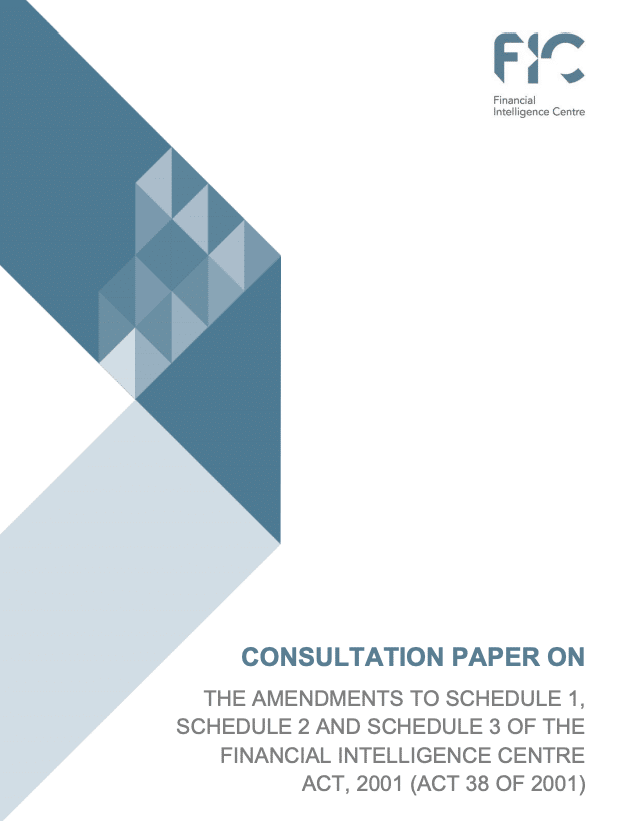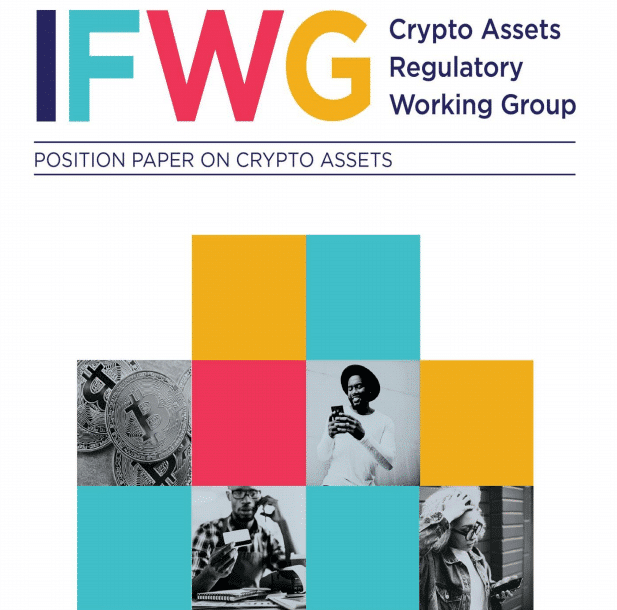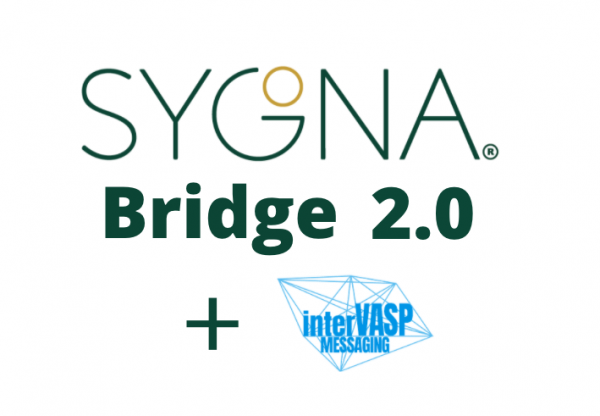Table of Contents
- Introduction
- South Africa, Crypto Assets and the FATF Standards
- Proposed Amendments to FIC Act (June 2020)
- South Africa’s CASP-qualifying activities
- What will FICA require of South African CASPs?
- CASPs’ FICA obligations as “accountable institutions”
- Conclusion
Introduction
On 23 June 2020, South Africa’s Finance Minister Mr. Tito Mboweni published long-awaited proposed amendments to the country’s Financial Intelligence Centre Act (FICA or FIC Act).
The proposal aims to bring South Africa’s regulatory framework in line with the Financial Action Task Force‘s Standards on virtual asset and virtual asset servicer provider (VASP) regulation.
The new changes to the FIC Act (established in 2001 to help AML/CFT in South Africa), if passed, will add sizable AML compliance requirements to the plate of South African crypto companies operating both in and outside Africa’s 2nd biggest economy.
To ensure that VASPs, referred to as crypto asset service providers (CASPs) in South Africa (and Japan), are properly regulated, the newly tabled amendments will define them as an “accountable institution” and subject them to fulfil specific duties to comply with FICA. This includes registering with the Financial Intelligence Centre (FIC) as well as undertaking more stringent customer due diligence.
South Africa, Crypto Assets and the FATF Standards
The FATF Standards acts as a global playbook for anti-money laundering (AML) and combating the financing of terrorism (CFT) to which its 200 jurisdictions must adhere.
In June 2019 the FATF promulgated its Recommendation 16 Travel Rule, which obligates VASPs to share transmittal data with counter parties. The FATF has recently set a new 12-month review deadline for June 2021 and will tentatively discuss South Africa’s AML efforts at its October 2020 plenary, after it scheduled an on-site inspection 4th Mutual Evaluation of South Africa in November 2019.
Proposed Amendments to FIC Act (June 2020)

On 23 June 2020, the FIC announced on its website that Mr. Mboweni proposed to amend Schedules 1, 2 and 3 in terms of sections 73, 75 and 76 of FICA. The proposals were gazetted on Friday, 19 June 2020 in Notice No. 684 in Government Gazette No. 43447 and public comments were closed on 18 August 2020.
The FIC supported its rationale for the proposal with its Consultation Paper Relating to the Proposed Amendments of the Schedules to the FIC Act, 2001 (Act 38 of 2001).
The amendments also build on the Intergovernmental Fintech Working Group (IFWG) and Crypto Assets Regulatory Working Group (CAR WG)’s thorough Position Paper on Crypto Assets.

Published in April 2020 the position paper outlines a comprehensive reform of South Africa’s cryptocurrency regulatory framework with as many as 30 legislative changes and an in-depth summary of 6 types of South African crypto asset service providers that should be treated as accountable institutions under SA law.
In a media statement, South Africa’s National Treasury referenced the FICA Amendment of 2017 which sought to address some of the country’s AML/CFT weaknesses identified by FATF’s Mutual Evaluation of 2009 and the IMF.
These weaknesses relate in particular to “designated non-financial businesses” and Professions as well as the tracking of and information sharing on cross-border cash flows.
The proposed amendments will expand the list of accountable institutions in terms of the FIC Act to include additional financial and non-financial businesses, including crypto asset services providers (CASPs).
South Africa’s CASP-qualifying activities

The consultation paper recommends that companies be classified as CASPs if they conduct any of the following activities:
- exchange crypto assets for fiat currencies or vice versa,
- exchange one form of crypto asset for another
- conduct transactions which move crypto assets from one address or account to another,
- provide facilities for the safekeeping or administration of crypto assets or instruments that enable the control of them,
- participate in or provide financial services related to issuers’ offers or sale of crypto assets.
Cryptocurrency exchanges fall under this new definition by way of the “safekeeping or administration” phrasing above.
What is a “crypto asset” in South African law?
At present the FIC Act does not define cryptocurrencies. The proposed wording for “crypto asset” in South Africa is as follows:
“a digital representation of perceived value that can be traded or transferred electronically within a community of users of the internet who consider it as a medium of exchange, unit of account or store of value and use it for payment or investment purposes, but does not include a digital representation of a fiat currency or a security as defined in the Financial Markets Act, 2012 (Act 19 of 2012).”
The FIC’s list of CASPs is very broad and covers almost all crypto asset business in South Africa.
The FIC’s definition seems to rule out stablecoins and central bank digital currencies (CBDC) at present. In 2019 the South African Reserve Bank was rumoured to be exploring a new “digital Rand” CBDC. This would be a welcome development for many in the private sector due to the country’s well-documented struggles with state and private sector corruption and misappropriation of public funds.
What will FICA require of South African CASPs?
According to a South African legal expert, FICA’s compliance requirements for CASPs include:
- Registering with FIC as an “accountable institution”
- Conducting customer due diligence (CDD) and Know-Your-Customer (KYC) procedures on all customers as part of a risk-based approach to the mitigation of money laundering and terrorism funding (ML/TF) threats.
- Developing, implementing and maintaining a risk management and compliance program (RMCP)
Those that follow recent virtual asset-facing regulations around the world will find these requirements very familiar (compare “accountable institution” for example with the EU’s AMLD5 “obliged entity” and the United States’ “money service business” (MSB) definitions ).
Since the second half of 2019 a number of countries such as Japan, Singapore, Canada, the United Kingdom, Switzerland, Cayman Islands, Bermuda, Abu Dhabi and others have adopted or introduced legislation that mirrors these FATF-driven AML compliance obligations in almost every aspect.
CASPs’ FICA obligations as “accountable institutions”

South Africa’s Financial Intelligence Centre (FIC) was created by the FIC Act of 2020 and is the country’s official AML/CFT regulator as well as a member of the Egmont Group that comprises a network of global financial intelligence units (FIUs) by country.
As an “accountable institution”, a South African CASP will be expected to fulfill these legislative obligations or face penalties:
- Customer identification and verification (KYC)
- Customer due diligence (CDD)
- Recordkeeping
- Continuous monitoring of suspicious and unusual financial activities
- Reporting suspicious activity and transactions to the FIC (similar to FinCEN’s SAR)
- Reporting cash transactions of ZAR 25,000 (currently roughly USD 1,450) and over (or the applicable threshold)
- Reporting activity that may pertain to terrorist organizations
- Maintaining of account holder and beneficiary information
What is South Africa’s “FATF Travel Rule”?
Mboweni’s proposed changes do not explicitly reference compliance with the FATF’s Travel Rule. At the time of writing (August 2020), South Africa does not have any legislation to enforce this.
However, it is a near-certainty that legislation covering this data-sharing AML requirement for VASPs will be rolled out before June 2021, the deadline for the FATF’s 2nd and likely final 12-Month Review of the Revised Standards for virtual assets and VASPs.
Most likely, the IFWG/CAR WG position paper’s FATF Travel Rule recommendation will be adopted by late 2020 or early 2021.

According to section 8.4.2.2 of the CAR WG’s position paper:
“CASPs will be required to implement Recommendation 16 (‘the travel rule’) of the FATF Recommendations.
The originating CASP should obtain, and hold, required and accurate originator information as well as required and accurate beneficiary information of the crypto asset transaction, submit this information to the beneficiary CASP or another obliged entity, and make this information available on request to the appropriate regulatory and/or law enforcement authorities.
The beneficiary CASP should obtain, and hold, required and accurate originator information as well as required and accurate beneficiary information of the crypto asset transaction, and make this information available to the appropriate regulatory and/or law enforcement authorities if and when requested to do so.
CAR WG’s position paper on Crypto Assets, April 2020
Conclusion
The proposed FICA amendments indicate that South Africa’s financial authorities are ready to act on the IFWG’s 2019 Position Paper, which outlines a three-stage approach to establishing a cohesive regulatory framework in the country, starting with the registration of CASPs.
The country’s currency has significantly dropped in value after recent downgrades to “junk status” and escalating debt brought on by corruption and a catastrophic COVID-19 economic lockdown, and this has resulted in it being toppled by Nigeria as Africa’s largest economy in May 2020.
SA authorities are therefore not only eager to please the FATF, but are also likely concerned with South Africans’ growing appetite for cryptocurrencies to help hedge against the falling Rand and move their assets abroad.
The country maintains very strict exchange controls to deter capital flight. For example, while it is legal for South Africans to buy up to 1 million Rand in cryptocurrency from abroad as part of their Single Discretionary Allowance (SDA), it is a criminal offense to sell these assets outside of South Africa without the Treasury’s approval.
South Africa and Japan were name-dropped in the recent GDF Travel Rule Summit by a regulator for their compliance with the FATF Standards, a rare feather in the cap of late for the country’s ailing financial system.
The “Rainbow Nation” still exerts influence in exporting its culture and technology across Africa, which will likely also guide how FATF-compliant crypto regulations are rolled out across other African jurisdictions.
At present the majority of African nations are still struggling with developing sophisticated regulatory frameworks due to challenges unique to the continent.
As the deadline for feedback on the proposed amendments expired on 18 August, the FIC will now review written commentary sent to it, before taking further steps in approving these new amendments.
When that will be is unclear at present, as the government continues to prioritize its battle with the COVID-19 pandemic.
Written by Werner Vermaak
About CoolBitX and Sygna Bridge
CoolBitX’s Sygna Bridge is a first-to-market travel rule solution and alliance network that is live and being used by our VASP partners to share compliant originator and beneficiary transmittal information.

Sygna Bridge completed a successful production test report (Big 4 audited) earlier this year, which was presented to the FATF Contact Group in May 2020. Sygna Bridge now also supports the IVMS101 messaging standard.
CoolBitX has signed MoUs with 18 VASPs worldwide and recently joined forces with Elliptic in a combined quest to help crypto companies comply with the FATF Standards.
For enquiries on the FATF Travel Rule and our Sygna Bridge solution for VASPs, please contact us at info@sygna.io.
Disclaimer: CoolBitX provides these blog posts for general educational purposes only. Information on this blog does not constitute professional legal or financial advice and should not be considered as such. The author or company may update the information on this article at any time without prior notice and do not guarantee the work to be up to date and accurate. To the best of our knowledge the information provided here is factual at the time of writing.


